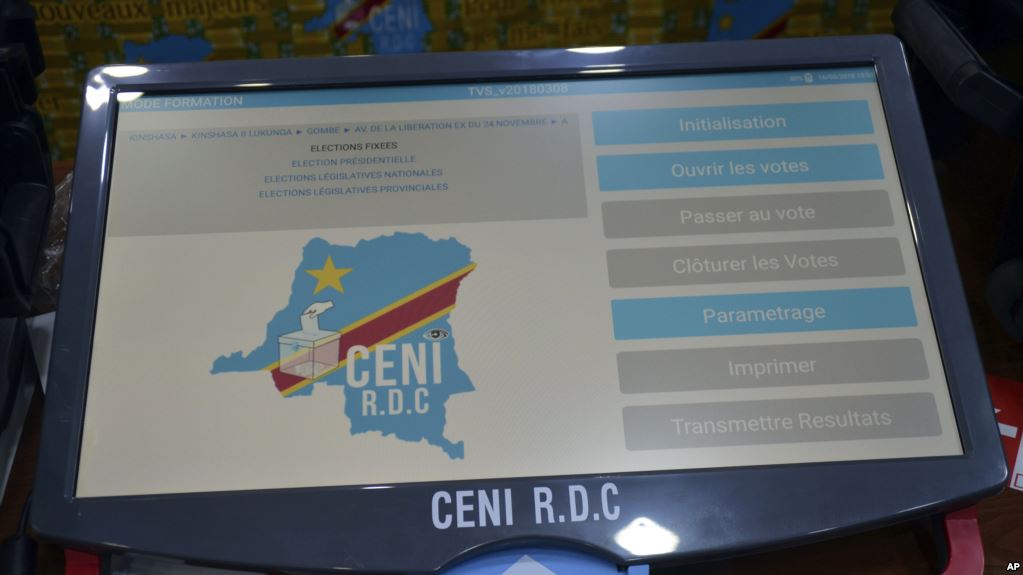DRC gets controversial voting machines
October 23, 2018 | Expert Insights

The tablet-like voting machines for December’s election have been ordered and will arrive this month, despite suspicions by diplomats and the opposition that they can be tampered with.
The vast central African country’s past elections have been marred by voting irregularities or violence.
Background
The Democratic Republic of Congo (DRC) is a country situated in central Africa, with a semi-presidential government. The Congo is a former Belgian Colony and is the largest francophone country in the world, with a population of seventy-eight million. The DRC has seen long periods of political and economic instability since its independence in 1960. The incumbent President, Joseph Kabila, is the son of Laurent-Desire Kabila, a Congolese revolutionary who restored democracy after thirty-two years of military dictatorship.
Joseph Kabila ascended to the presidency in 2001, just ten days after his father was assassinated by one of his bodyguards. In these seventeen years, Joseph Kabila has faced a constant armed struggle in Eastern Congo against rebel militias who are reportedly funded by neighbouring Uganda and Rwanda. Kabila’s seventeen-year administration is marred with a complex web of corruption allegations, the worsening humanitarian situation and an overall failure to govern.
The UN, US and a host of African leaders have made it clear President Kabila has overstayed his welcome and urged him not to run for a third term this December.
Analysis
Long-delayed elections are expected in the country later on December 23 and election officials see this technology as vital to holding those polls, believing it will cut costs, and help reduce electoral fraud.
Congo’s deputy prime minister said that tablet-like voting machines for December’s election had been ordered and will arrive this month. Over 180 containers of the voting machines from South Korea are expected to make the electoral process easier. Despite suspicions by diplomats and the opposition that they can be comprised.
The electoral commission says the machines speed up the counting of votes in the vast central African country where past elections have been marred by voting irregularities or violence.
President Joseph Kabila is due to step down after 17 years in power. The election, which was meant to happen before Kabila’s mandate expired in 2016, has been delayed for so long that many doubted it would happen.
If it goes ahead, it will be Democratic Republic of Congo’s first peaceful transition of power since independence from Belgium in 1960.
Congo’s influential Catholic bishops have called for certification of the machines by international experts, and opponents reject the machines’ use.
“We are currently facing a serious problem, because electoral campaigns are set to begin from November 22, which means it will be too late. We can already say that from mid-November, elections will not be good, and that we are headed towards violence and chaos, that’s what we fear. We are now in the final days and there needs to be renewed efforts to avoid all of that,” Isidore Ndaywel È Nziem, a moderator for the Committee of the Catholic Laity (CLC).
Western governments and investors regard the election as a crucial step towards ending political instability that is impeding investment in Congo, which is rich in natural resources but mired in poverty and economic and humanitarian crises.
Assessment
Our assessment is that the election is a crucial step towards ending political instability that has impeded investment in DRC, a country rich in natural resources but mired in poverty and humanitarian crisis.
IndiaWatch
With General Elections within the next few months, India could learn from this and prevent the deployment of experimental technologies in voting machines. Recent elections have been marred by reports of Electronic Voting Machine (EVMs) being rigged in favour of the ruling party candidates. India’s status as a democracy should not be undermined by unfair electoral practices and faulty EVMs.








Comments